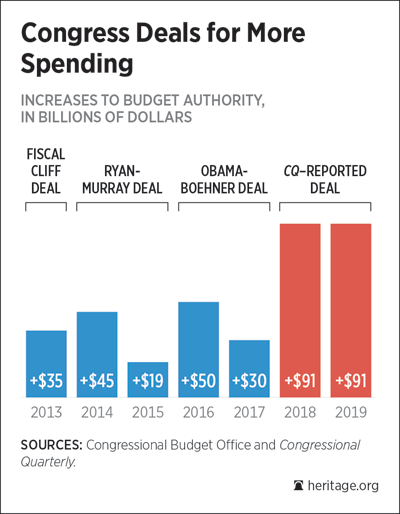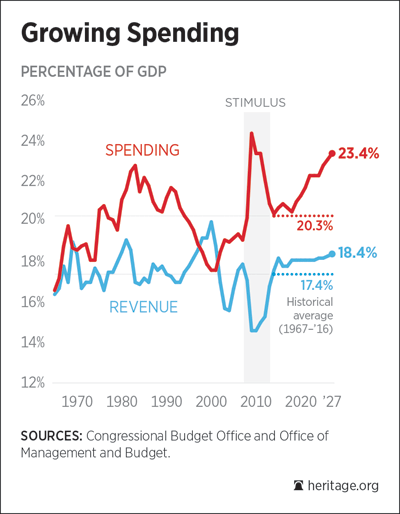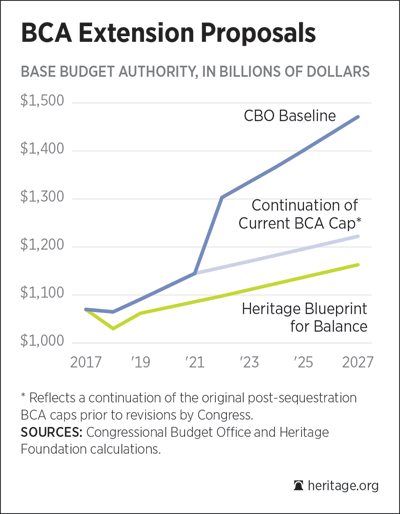- The Budget Control Act of 2011 (BCA) placed caps on discretionary spending from 2012–2021. It also implemented an annual automatic reduction of funding to nonexempt mandatory programs. The BCA was projected to cut $2.1 trillion in spending over 10 years when it was passed.
- Congress is poised to pass another budget deal that could increase the BCA caps by as much as $200 billion over the next two years. Reports indicate that, unlike previous budget deals that were paid for with spending cuts in other areas, some of this spending increase may not be.
- Congress should reject any effort to increase the BCA caps and instead reform elements of the act and live within its overall spending limits.
- If Congress does decide to increase discretionary spending limits, those increases should be fully paid for with meaningful mandatory reforms, including interest.
- Since passage of the BCA, the act has been modified three times, increasing spending by over $170 billion.

- While Congress paid for some of these increases, lawmakers also resorted to budget gimmicks and accounting tricks that produced no real savings. An attempt at paying for spending increases, even if flawed, is still preferable to no attempt at all.
- Congress has a spending problem. The BCA is one of the few tools in place that encourages fiscal responsibility, and it should not be abandoned.

- The upcoming budget debate provides an opportunity to reflect on the BCA and find ways to reform and improve it.
- Congress should remove the current defense and nondefense category caps in favor of one broad discretionary cap. This would allow Congress the flexibility to provide much-needed increases in defense spending without increasing deficits.

- Transparency and accountability in budgeting should be strengthened with reforms such as repealing sequester exemptions; prohibiting the use of CHIMPs to increase spending; penalizing unauthorized appropriations; and budgeting for wars, disasters, and emergencies within the spending limits.
- Discretionary spending limits should be permanently extended. If Congress adopted Heritage’s Blueprint for Balance, it would save $1.7 trillion over the next 10 years. Extending the current BCA caps would save nearly $1.2 trillion compared to current law.
- Spending limits are a critical fiscal tool with which to encourage budgetary discipline. Spending limits encourage Congress to prioritize among competing programs. Such budgetary restraint can facilitate greater transparency and encourage lawmakers to examine and debate the trade-offs involved in spending decisions more carefully.
To learn more, see “Reform the Budget Control Act Spending Caps” by Romina Boccia and Justin Bogie,
available at http://www.heritage.org/budget-and-spending/report/reform-the-budget-control-act-spending-caps.
To download these charts and more, please visit http://federalbudgetinpictures.com/.



